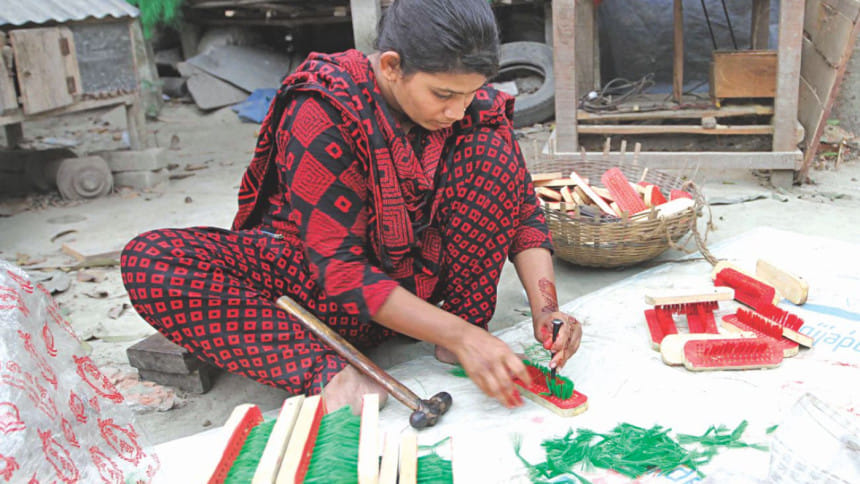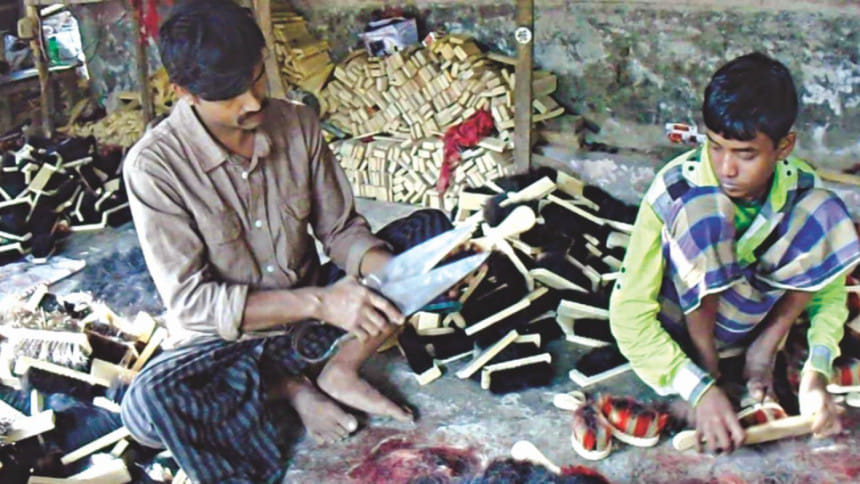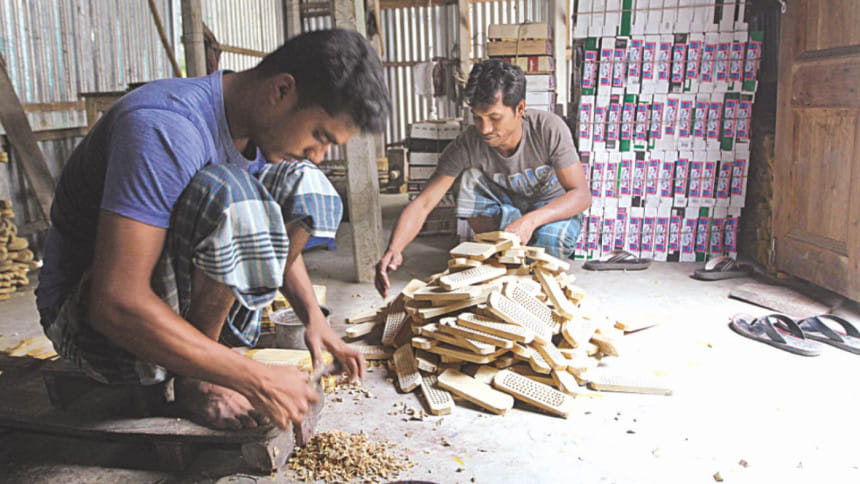Change Maker: The brush makers who changed many lives

Introducing three entrepreneurs: Ramjan Ali, Rokon Mollah and Abdul Mannan; they have things in common. All hail from Herendrapara village of Lauhati union in Tangail's Delduar upazila. Each owns a brush factory. Combined, their efforts brought industry to their village, a community's fortunes irrevocably brightened. The initiatives of these three have transformed the lives of hundreds.
It began quite humbly. In search of an income, Ramjan left the village first, decades ago at age 15. He travelled to Dhaka and found a job in a Lalbagh brush factory. A few years later, Rokon and Mannan followed. Sacrificing village tranquillity for Lalbagh's hum, bustle and salary, they too found brush factory jobs.
It wasn't unusual to leave Herendrapara in search of work. The remote village on the bank of the Dhaleswari river had few employment opportunities. Even a decade ago, beyond earthworks or working as a boatman, independent jobs were hard to find. The economic situation was so bad that many families remember what it means to go hungry.
To leave Herendrapara isn't unusual; but it's not at all common to return.
After several years as an employee, Ramjan branched out on his own. He rented modest premises in Lalbagh for his own brush factory. It was 25 years later, in 2007, when he decided to take his factory home.

“I'd been struggling to find adequate space to rent and affordable manpower,” Ramjan recalls. “A large part of my income was devoured by factory and house rent in the city. I decided to relocate.”
Rokon and Mannan followed Ramjan's lead again. Within five years Herendrapara had three brush factories.
“I can assemble up to five dozen brushes a day,” says enthusiastic former housewife Halima Begum. “According to quality and size I earn between Tk 2 and Tk 5 for each.”
Thanks to her factory income of up to Tk 3,000 per month, Halima can send her children to school. “Before the factories,” she recalls, “all I did beyond housework was to gather dry leaves for cooking.”

Neighbour Rozina Akter tells a similar tale. “From brushes I cover our family expenses and have money for personal use as well,” she says. The three factories employ around 500 villagers, including 350 women.
Naturally, the improved affluence of brush-making families has a flow-on effect. “The poor women hardly ever reached the market,” says Lauhati Bazar stationery shop proprietor Badal Chakroborty. “They had no money to spend. Now they are regular customers, including at my shop.”
Shoe, coat, carpet, press and distemper: Herendrapara produces a wide range of brushes. The timber handles are of kodom wood bought from local timber traders; the tail hair of cows arrives from Dhaka tanneries. Nylon and iron wire complete the raw materials required.
Workers cut and shape cow hair, the nylon and wood at the factories. Women working from home assemble the pieces. Finishing and burning are completed at the factory, with brushes lastly drying in the sunlight. Most are sold to Dhaka's brush factories where true origins are masked by city logos.
Yet our entrepreneurs aren't entirely satisfied. “Some traders have started exporting cow hair to China,” says Abdul, “It has increased the local price from about Tk 50 per kg two years ago to Tk 275 now. Our profits are decreasing.”
“The police department used to buy around 3 lakh shoe brushes every year,” he continues, “Now they use imported Chinese brushes. Those brushes are essentially the same; only the Chinese ones have little designs on the handle. As I know, contractors supply these foreign brushes to the police for Tk 60 each; ours we sell to middlemen for Tk 22, a price so low that it impacts quality. If end users bought brushes direct, for at least Tk 30 per brush, we could guarantee a better quality product than any Chinese brush.”
“Between us we employ several hundred villagers in our factories,” says Rokon. “But we have no government patronage or large contracts with local organisations. We could supply the defence forces, border guards and Rab along with the police. They would be supporting local industry. They would be supporting our Herendrapara.”

 For all latest news, follow The Daily Star's Google News channel.
For all latest news, follow The Daily Star's Google News channel. 



Comments